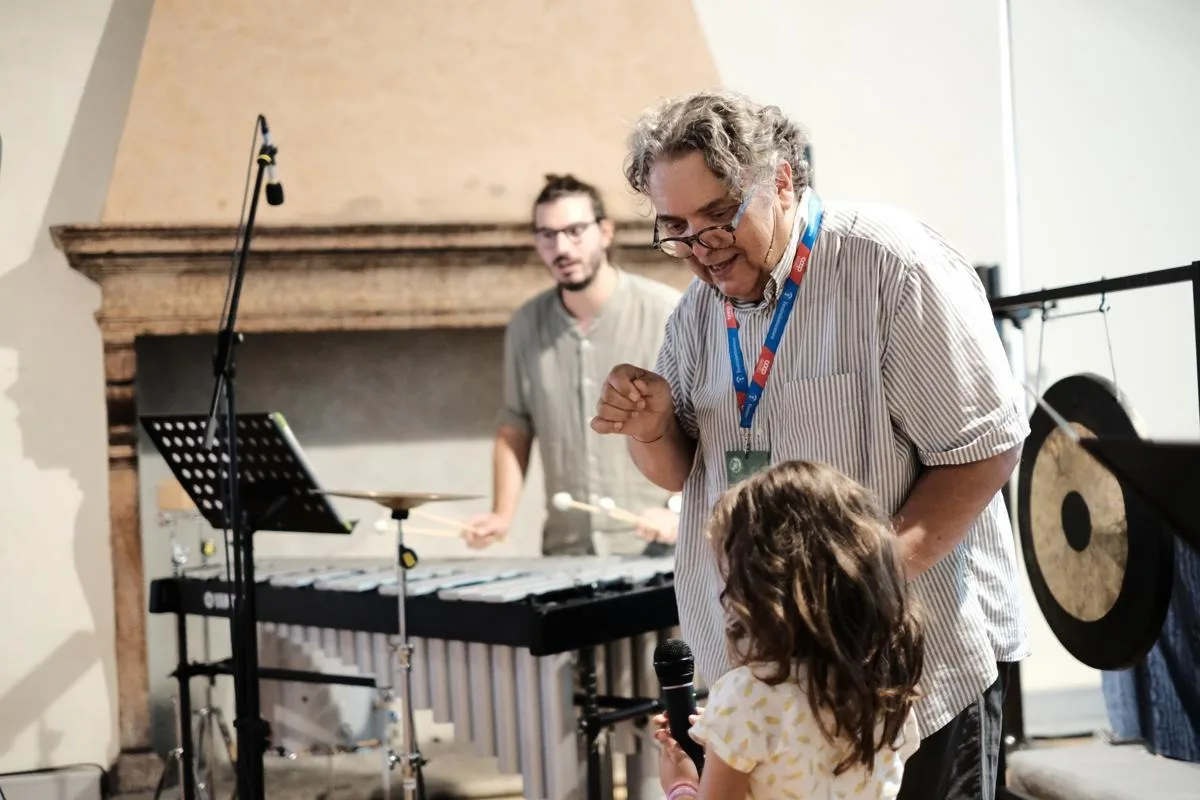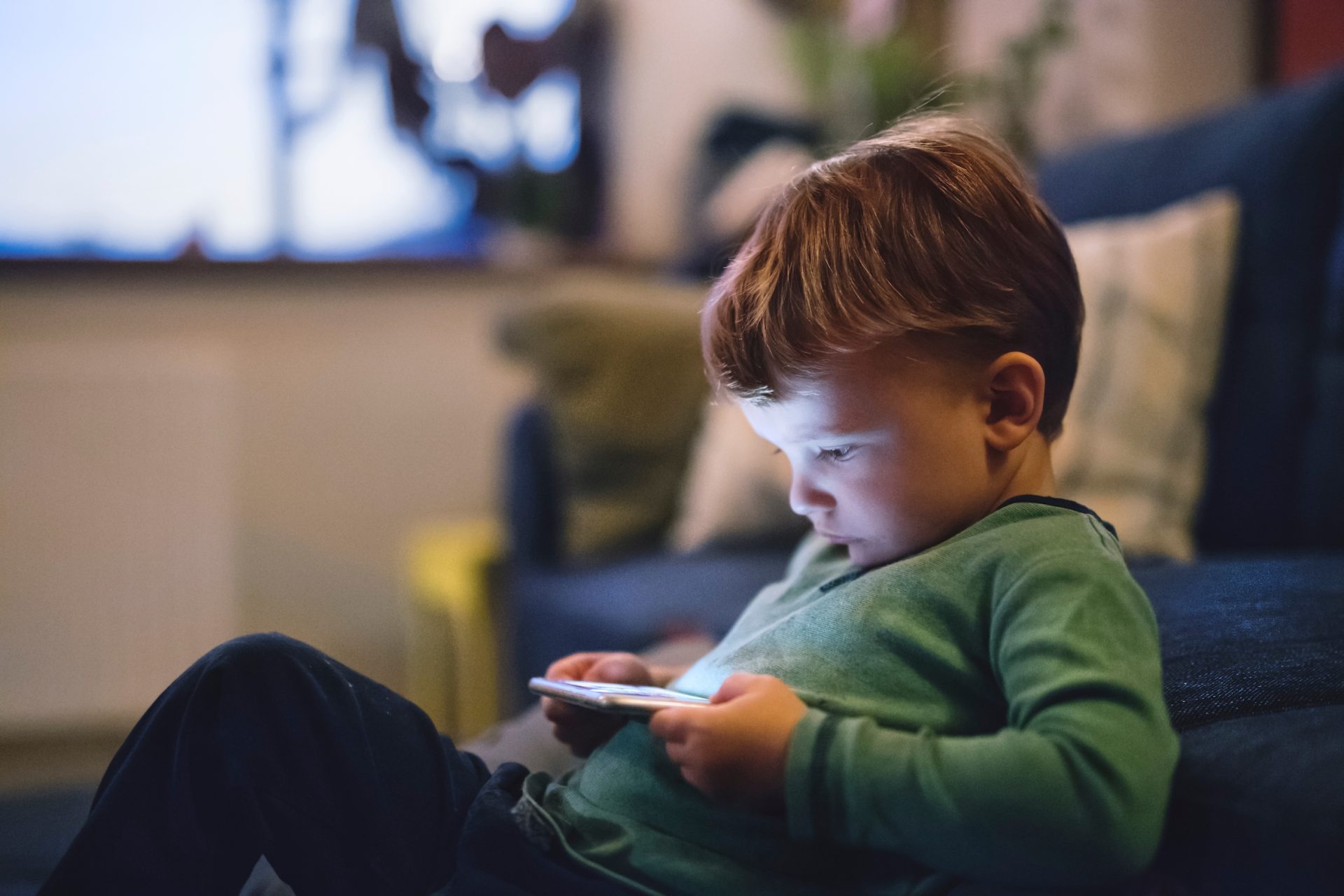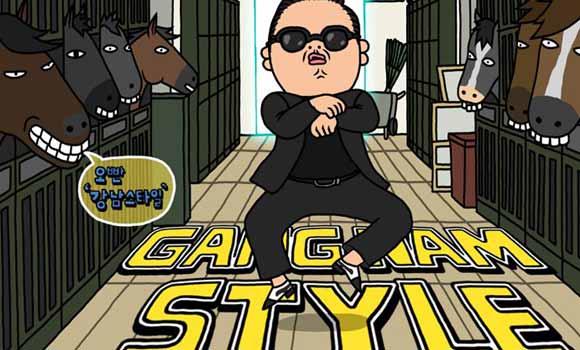In September Ocarina participated in the Festivaletteratura di Mantova with two events for children entitled Che Mai Sento? (What do I feel?). Two reading sessions of unpublished fantastic stories interpreted by the actor Pino Costalunga and accompanied by the live sound of the noise-maker Renato Taddeo. A beautiful initiative, full of interest and fun for the young public that listened to the stories, mouth open, excited and identifying with the protagonists. After careful and silent listening, the children were actively involved in recreating the sounds and noises of the stories. For the occasion, Ocarina interviewed Costalunga, theater actor, director, author, expert in children’s literature, who told us about his long professional adventure with children, also revealing some tricks – the result of his long experience – that he uses to involve them and capture their attention.
Since the 1980s you have worked in the theater world, collaborating with prestigious Italian and foreign companies; what is the reason that prompted you to work with young people?
Over the years I have been involved in many reading projects and shows for children and I am the author of books and texts for the theater for children. I have also participated in many national literary festivals with laboratory projects, narration and Read-aloud: among these the Festivaletteratura di Mantova. My main goal is to promote children’s literature as well as the Read-aloud. Young people need to read, starting from schools.
What are the key elements to keep children’s attention awake, at the theater or during readings?
First of all it is important to have beautiful stories to work with, with interesting content. Then the story needs to be told well to involve the children. However, this is not enough. The children’s audience is special: the little ones are often not used to going to the theater, they can’t stay silent, they talk, they want to participate. The actor’s ability lies in containing this flow, pulling them in, considering them not a disturbing element, but, on the contrary, enriching. It is certainly not easy, because actors often get caught up in their ego and just can’t do it. To get them to follow you, you have to involve them, you have to play with them, all in a professional, serious way. The theater is not an “electronic game” nor a tablet, with which children really interact every day. The live show can be for the child the occasion in which he learns to understand that there are also moments dedicated to the listening
Before, you talked about the importance of educating children to listen and how the theater or live reading in general can play a fundamental role.
Especially in the Read-aloud, children need to understand that there are times when you can talk, but others when you have to listen. This is very important; during the storytelling, the narration, you can participate with your feelings: get excited, be afraid, have fun, feel the poetry of things … Read-aloud is important because it helps children develop imagination, as well as language … Often, children who are used to listening to their parents’ readings, or through audio books, have more language properties and use a wider vocabulary to express themselves.
Where did your passion for the Read-aloud come from?
Read-aloud helps children listen, but also adults to relax, because it refers to the voice of mom and dad who tell the stories. For example, I am very fond of the story of Tetè that my dad always told me when he came home from business trips. Tetè was a gypsy who traveled the world with his family on a big truck … Tetè helped me dream and will always remain my favorite childhood character. Among the contemporary authors who write for children, I love Ulff Stark, with whom I had the pleasure of collaborating; in particular I recommend everyone to read his book Il paradiso dei matti.
The theater at the time of the pandemic. In these two years in which the theaters have been closed, have you managed to carry on in any way your activities with the children?
During the Lockdown with Fondazione Aida, the foundation based in Verona of which I am the artistic director, we gave life to the Teatro Off Line Ritrovarsi a teatro, an initiative that had the aim of offering young people the opportunity to participate in theater lessons held by professionals and trainers. All this took place in a virtual environment that allowed participants to interact and meet people of the same age, share their emotions and even discomforts. For the little ones, we organized Onlife, a program of online shows, where the Zoom platform conveyed young spectators – in a limited number – to a secret room that allowed them to experience the show interactively. Both initiatives were beautiful, but I must say that we missed a lot the face to face, hugging each other … In fact, I am convinced that theater is first and foremost a relationship, a meeting place, and for this very reason in recent months we have so much hoped that the theaters would be reopened. Now it seems that it is possible and, in fact, in November we will finally restart with our initiatives, this time finally in presence.








